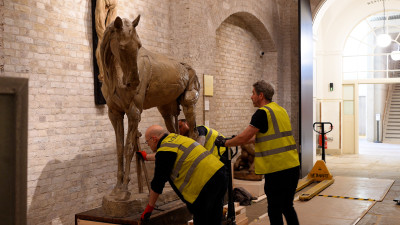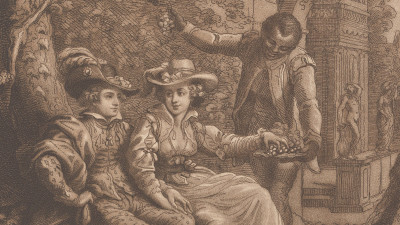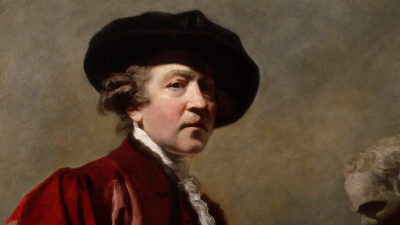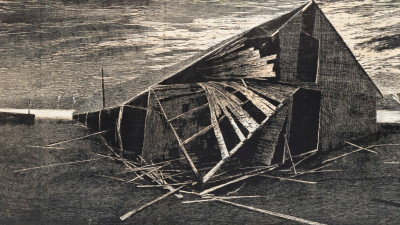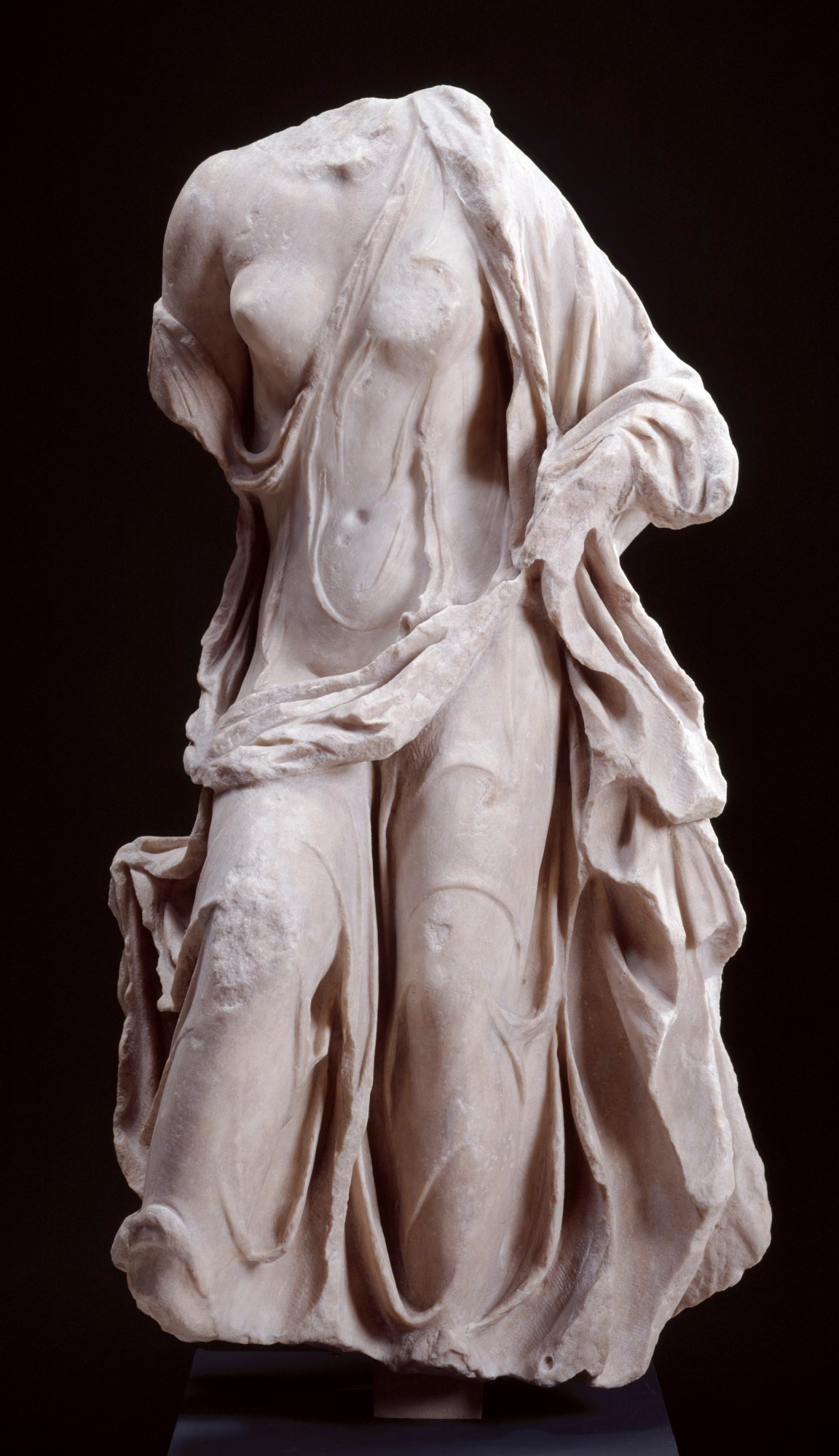
Timotheus, Draped Female Figure, ca. 375-350 BC.
Marble. 770 mm. © Photo: Royal Academy of Arts, London. Photographer: Paul Highnam.
This image is not available to download. To licence this image for commercial purposes, contact our Picture Library at picturelibrary@royalacademy.org.uk
Draped Female Figure, ca. 375-350 BC
Attributed to Timotheus (fl. ca. 375 B.C. - ca. 350 B.C.)
RA Collection: Art
On free display in Collection Gallery
This is the only original classical sculpture in the Royal Academy Collection, although there is disagreement amongst scholars as to whether it is an original Greek sculpture or a Roman copy of a Greek work. The subject is unknown—the drapery, clinging to the female torso as if wet, provides a clue, leading authorities to identify it with various mythological figures associated with the sea.
One suggestion is that the figure is Andromeda, who was sacrificed to a sea monster by her father King Cepheus before she was saved by Perseus. Another is that it may represent a sea nymph, and that it was originally part of the Temple of Asklepios in Greece. Sea nymphs (Nereids) and breeze nymphs (Auras) adorned niches in the temple, and the lack of sculpting on the back of the sculpture suggests that this is the function that it served.
In 1927 Bernard Ashmole attributed the sculpture to Timotheus, a prominent Greek sculptor of the late Classical period, who worked on the Temple of Asklepios. Rather than a nymph, however, Ashmole suggested the sculpture represented Europa, who in Greek mythology was carried across the sea to the island of Crete by the god Zeus, in the form of a bull.
It was given to the Academy by Henry Weekes RA in 1855 so students could study classical art from an original. It subsequently inspired many artists, particularly Victorians who looked back to classicism such as Lord Leighton PRA and Sir Lawrence Alma-Tadema RA, although Alma-Tadema was shocked by the lack of care the Academy took over the sculpture. In 1906 he wrote: ‘To my great astonishment I find a beautiful antique marble remnant of a statue standing on a two foot high pedestal. Of course it is knocked about & with easels etc leaning against it and if the Council judges it necessary to leave it in the school for study it ought to be put in a conspicuous place where it can be seen properly & is out of danger.’
Further reading
Bernard Ashmole, Denkmäler, Brunn-Bruckmann, 1927
Charles Picard, Manuel d’archéologie Grecque III: La Sculpture Periode Classique IVe siècle, Limoges Editions and J. Picard et Cie, 1948
Object details
770 mm
Start exploring the RA Collection
- Explore art works, paint-smeared palettes, scribbled letters and more...
- Artists and architects have run the RA for 250 years.
Our Collection is a record of them.
